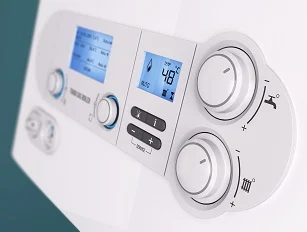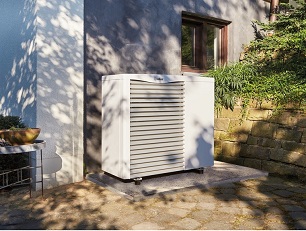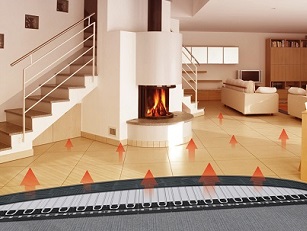 Free delivery on orders over £75 ex VAT
Free delivery on orders over £75 ex VAT Free click & collect from branches nationwide
Free click & collect from branches nationwideWhether you're just starting out as a heating engineer or you're thinking about going it alone, we know a thing or two about what it takes to become one of the best, which is why we've put together our top tips to help you get to the top.
What's the difference between a gas and heating engineer?
First things first, it's important to remember that plumbing and heating engineers are slightly different to a gas heating engineer.
Heating engineers often work alongside gas engineers carrying out as much work as possible on a heating system that does not require working with gas. Heating engineers often hold an NVQ or equivalent, which is the next step up from a plumber, but they are in no way licensed or qualified to undertake any work on gas. However, some gas engineers are only licensed to work on gas meters whilst others cover all types of work!

Why choose a career as a gas or heating engineer?
If you’re looking into becoming a gas or heating engineer, it's fair to say you'll never be out of work. And the fact that you'll be involved in a whole host of different projects, from domestic jobs to huge commercial projects, means no two days are the same.
In addition, because there's currently a shortage of gas heating engineers, you should be able to find employment, regardless of whether you work for yourself or for a company. This high demand for gas engineers allows you to earn a higher level of pay – dependent on your skill level, location, and your role.
Get on the Gas Safe Register
One of the biggest differences that separate plumbing and heating engineers from a gas engineer is that the latter must be registered annually with the Gas Safe Register. This is a legal requirement when working in the UK, so it's important that you carry your ID card at all times when on the job.
Not only will you appear professional, but it will offer peace of mind to the people who have hired you
Find a reliable merchant
Set yourself apart from the competition by using a reliable merchant for your tools and supplies. When you buy your equipment from a specialist retailer like us, you know that you're purchasing products that are quality assured from leading brands, ensuring longevity and excellent performance – which will make you look good too!
And because we offer Click & Collect, as well as Next Day Delivery, you won't have to worry about hold-ups, so you can get on with the job at hand.
Diversify into newer heating technology
With the government looking to ban gas boilers in newbuilds from 2025, now could be the perfect time for you to diversify and become a renewable energy engineer. Not only will gaining a certification in green heating systems increase your earning potential and career progression, but you'll have a sense of satisfaction knowing you've helped play your part in achieving the UK's net zero emissions target.
To install renewable heating systems, you must be certified by the Microgeneration Certification Scheme (MCS). MCS is a quality-assurance scheme and being certified shows that your company installs renewable technology to the highest standard. With training in this area, you will have the ability to install renewable energy technologies as well as maintain these systems. This will also allow you to work in an accelerating field, with room for further expansion.
Renewable heating systems come in several forms. Each of the different systems works to extract heat from different sustainable energy sources. Renewable heating systems designed for domestic installation include:
- Air source heat pumps
- Ground source heat pumps
- Biomass boilers
- Solar thermal panels
Heat pumps are the most popular renewable heating system that homeowners are choosing, particularly air source heat pumps.
The best bit is that we have an in-house Energy Efficiency team who are dedicated to renewable energy design and estimation, which means we can offer a variety of services tailored to your projects.
Want more information about how our Energy Efficiency and Design team can help you? Email us on tpsbs@travisperkins.co.uk or call our helpline on 0800 688 8388 and speak to one of our experts.
And don't forget to check out our other blogs for more industry insights.
Other articles

Everything you need to know about the Green Homes Grant
04 Mar 2022 ・ 8 mins

How to become a renewable energy engineer
03 Mar 2022 ・ 7 mins

Electric or water underfloor heating? An installer's guide
03 Mar 2022 ・ 5 mins

